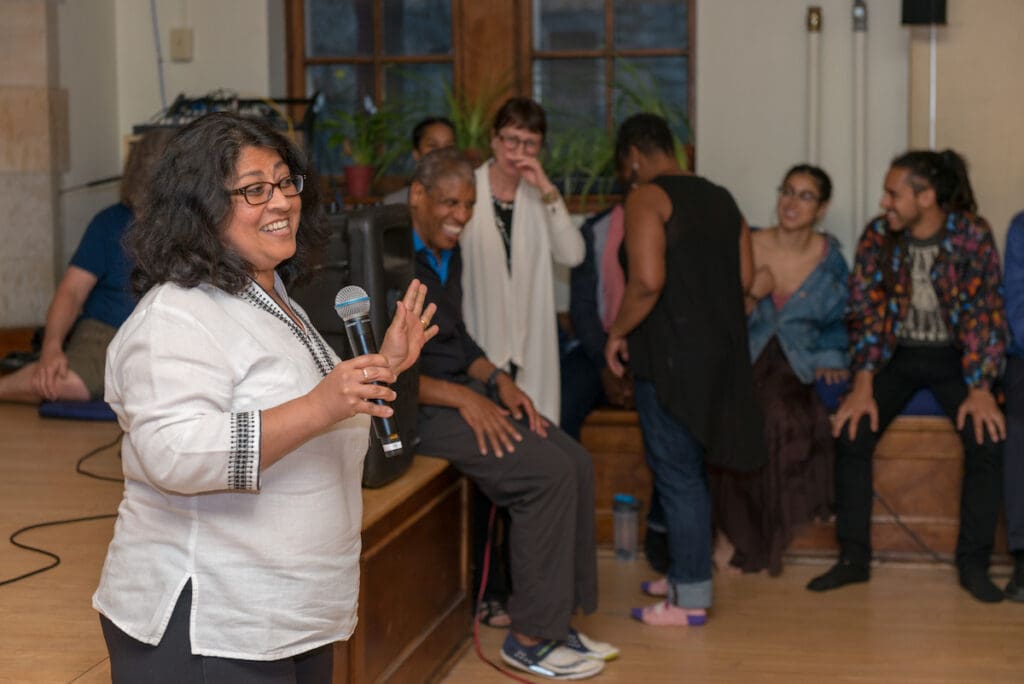
In its mission to bridge science and contemplative wisdom to better understand the mind and create positive change, the Mind & Life Institute recognizes that society ultimately benefits from research that is more inclusive and reflective of the diversity in our world. Yet too often that’s not the case. Take the example of women who make up half of the total college-educated workforce in the United States; yet comprise only 28% of the STEM workforce. Of this number, 5% are women of color. Globally, less than 30% of researchers are women.
At Mind & Life, we’re proud to have supported many women over our 35 years who have developed critical insights in contemplative research that shine a light toward the goal of flourishing for all. Through our grants, events, and digital offerings, we provide funding for emerging and established researchers while creating networking opportunities and platforms for elevating important work being done in the field. Here, we share wisdom from four women in contemplative research working to transform systems of oppression—from the inside out.
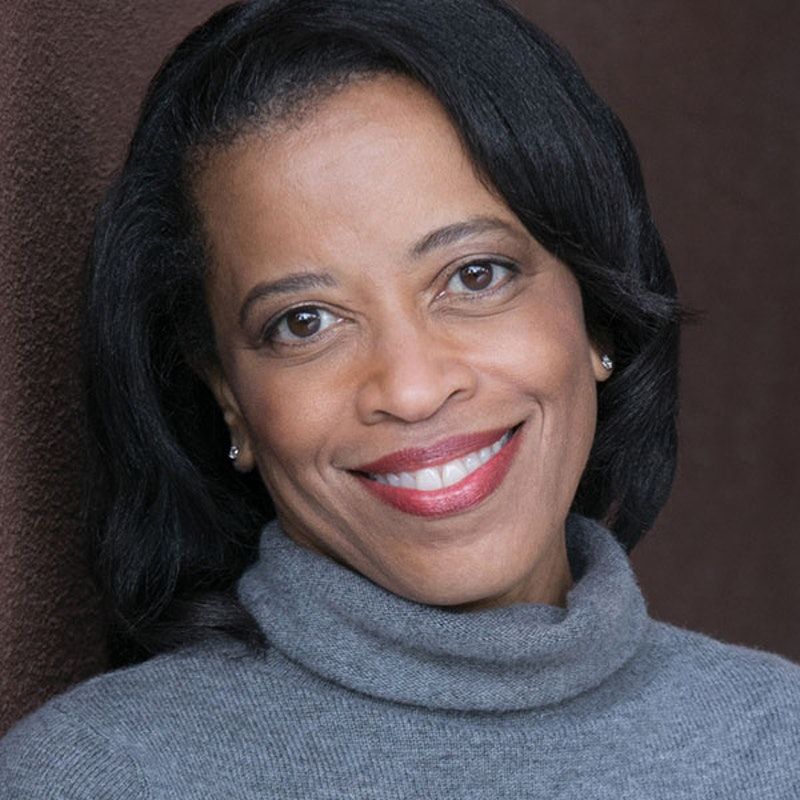
Rhonda Magee: Questioning what we think we know
Mindfulness offers a vital pathway to inviting inquiry into the suffering of others. As a law professor, mindfulness teacher, and author of The Inner Work of Racial Justice Rhonda Magee shared on the Mind & Life podcast, “It’s so easy to be in a trap of our own creation about what we think we know, and who we think we are.” Contemplative practices invite us to start where we are in our own experience. From there, we can challenge our understanding of reality and our notions of what equity looks like, she shares. Such practices can cultivate spaciousness for navigating the complexities of restorative justice, from seeking to minimize harm in small ways to walking through the world with a commitment to our ethical responsibilities.
Questioning what we think we know and turning to the wisdom of the body allow us to recognize that we are, in many ways, learning as we go, she adds. There is courage in working to alleviate suffering, and through contemplative practices we can pause, reflect, see what’s working (and what isn’t), and try again.
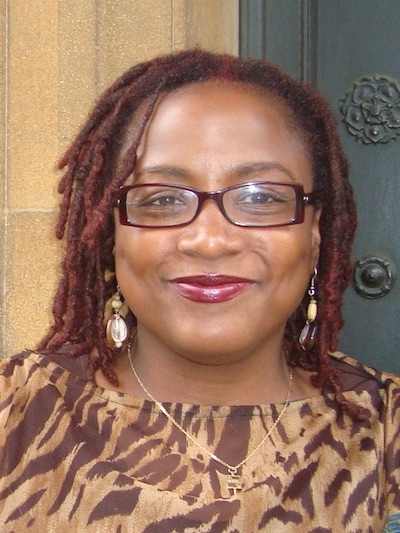
Kamilah Majied: Practicing cultural humility
How can we use humility and authenticity to become better listeners, in relationships and in research? Researcher, mindfulness teacher, and professor of social work Kamilah Majied has found right speech and humility to be vital for the success of inclusivity in research and in creating change.
By tapping into contemplative tools and wisdom while engaging with others—in our personal lives and in the way we conduct research—we create space to reflect on our experiences and advocate for more inclusive and authentic language. In her research looking at the impact of racism and homophobia amongst Black LGBTQ+ people in Africa, the Caribbean, and the UK, Kamilah found that asking participants to self-select sexual orientation from a list of options created its own barriers to inclusivity. More often than not, participants struggled to try to create a box when they didn’t want a box around their experience.
Her work underscores the value of authenticity and humility in speaking with others and in designing research projects. “We really have to practice cultural humility in a way that creates spaces where our subjects, participants, or people we’re engaging with might actually reveal what they really think, without the masks that are known to soothe people with privilege,” she says.
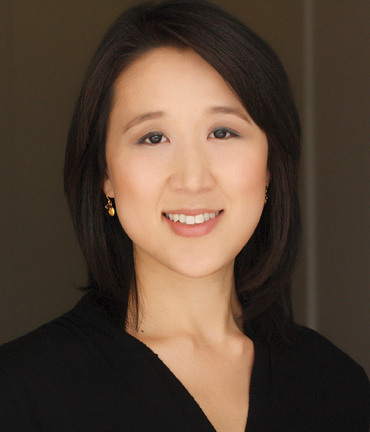
Doris Chang: Creating safe spaces for collective learning
Through her Critical Consciousness framework, clinical psychologist Doris Chang refers to the process of beginning to see systems of oppression and privilege, the structures they create for people in our communities, and how each of us are complicit in upholding those oppressive structures without necessarily knowing it.
It’s something she teaches clinicians in a classroom setting, and it’s often a rocky ride. It can be painful to experience suffering as a daily reality for so many. And learning is not always a linear journey, especially with experiences as messy as racial biases and systems of oppression. So how can we support our collective learning while being kind to ourselves and others?
Mindfulness and contemplative practices help foster environments that are open, curious, and compassionate for each of us on the journey to healing. Doris’ class becomes a community where students can monitor traditional power dynamics—like male students speaking up more than females or white students speaking up more than students of color—and engage in tough conversations without shame. “We want people to bring their full selves to the table,” she says, “and to create space for everybody else to do that also.” Hear more on the Mind & Life podcast.
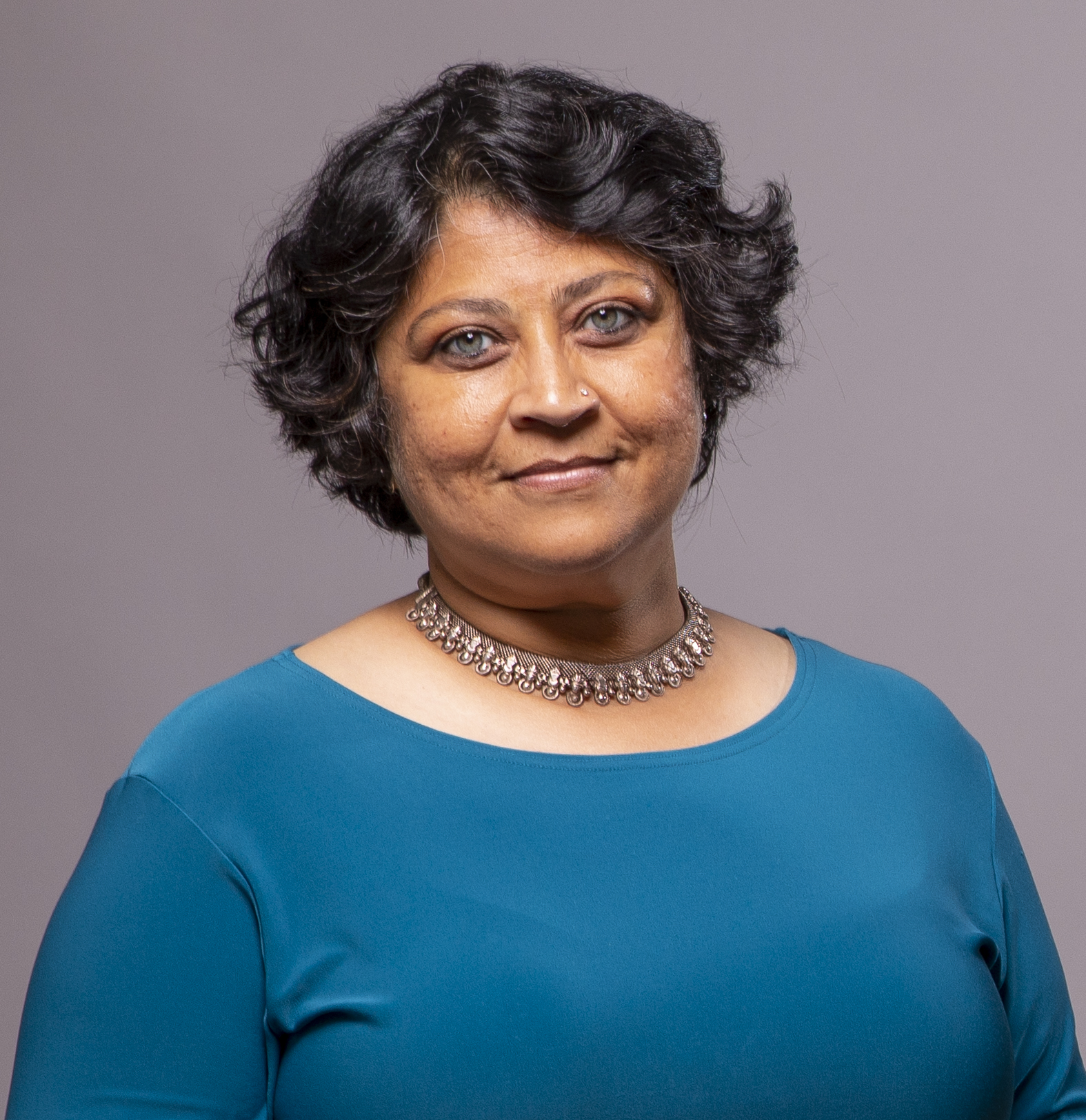
Buju Dasgupta: Supporting young women in STEM
Implicit bias is the tendency in the human mind to group people, in a split second, into groups that are valued and other groups that are less valued, without really being fully aware of it or intending to do so. It was long believed that these biases developed early in life and changed slowly, but recent research by social psychologist Nilanjana “Buju” Dasgupta finds that changing how our social environments are constituted—re-patterning the “wallpaper” of our lives—can fairly quickly change our implicit attitudes.
“If we always stay in the same room, and we always see the same people,” she explains, “those implicit biases will always look the same. So I think the fixedness, the rigidity of implicit bias, is really because our environments that we occupy are typically always the same.”
This is a truth seen extensively in her work to support underrepresented groups in STEM—especially women of color. Increasing representation in STEM, or in any space, starts with creating social contexts where people feel like they belong. How? Role models, peer mentors, and environments where collaboration is encouraged are key. Buju shares more about implicit bias and diversity in STEM on the Mind & Life podcast.
In these valuable insights from extraordinary women in contemplative research we can’t help but see how far the field has come. At the same time, we recognize the need to expand opportunities, especially for BIPOC investigators. Toward that end, this spring Mind & Life will begin piloting a new mentoring program to support and grow the pool of Global Majority investigators in contemplative research, particularly those who attend the Mind & Life Summer Research Institute (SRI) and those who seek funding from our grants.
While we are proud to be a touchpoint in the careers of so many brilliant women researchers, we recognize our work to foster greater inclusion and equity in this growing field is far from done.
…
We hope you’ll consider joining us online for the 2022 Mind & Life Summer Research Institute on “Othering, Belonging, and Becoming.” Among our faculty will be Dr. Kamilah Majied, who will be speaking about integrating Equity, Diversity, & Inclusion values in research design and implementation. See a full list of faculty here.

